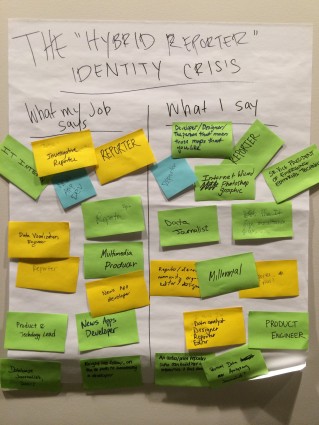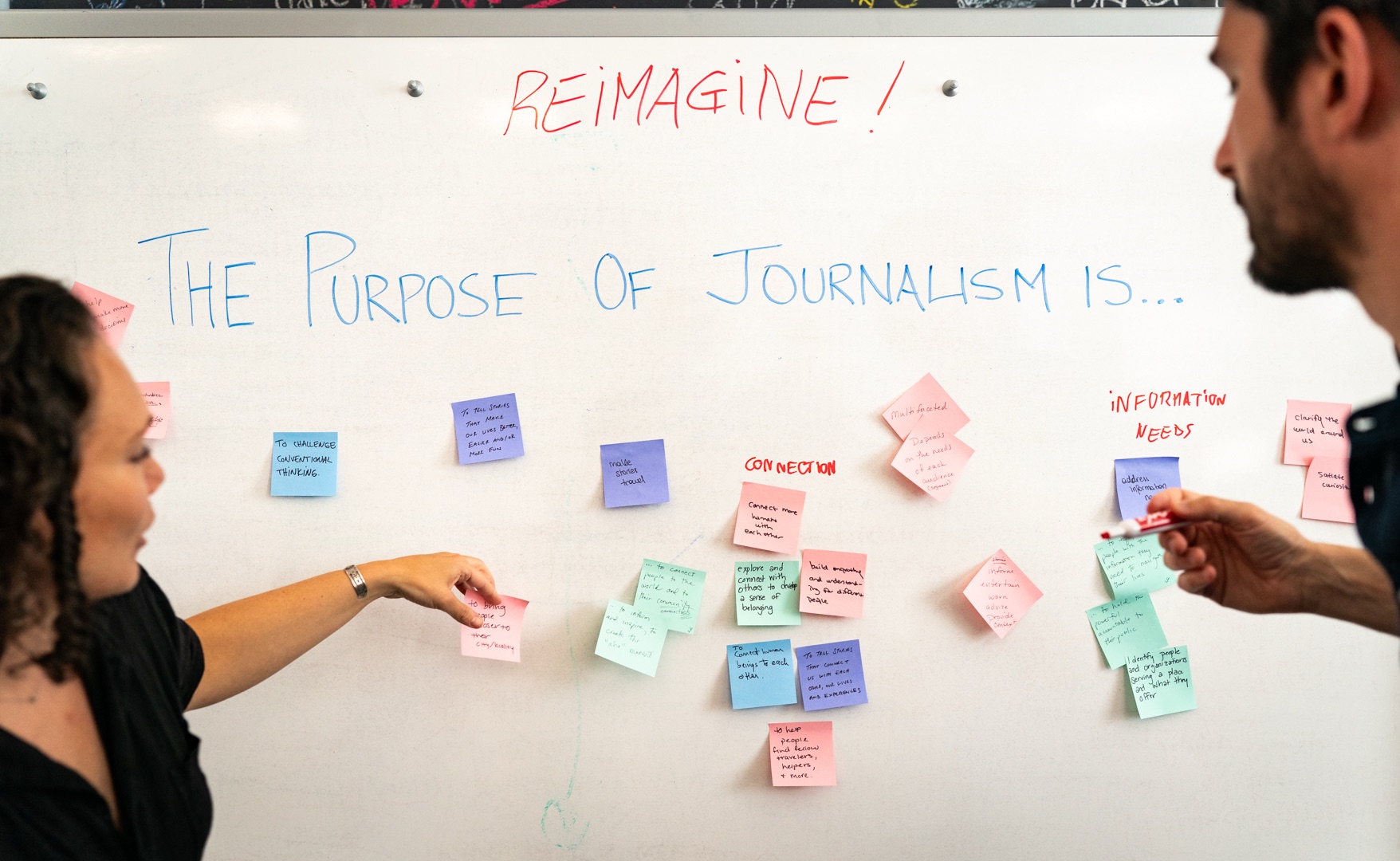
Despite the fact that neither drinking nor networking (“You need to be more sure of yourself!” Alex Duner wailed to me after an awkward introduction to his former colleagues) is really my thing, I found myself at the bar of the Marriott Marquis, in a circle of journalists from across the nation. NICAR15 is not the time for a student journalist like me to hide in the comfort of her hotel room.
“This is my first NICAR,” I told The New York Times’s Jacob Harris, who stood next to me. “I’m doing some soul searching.”
“Yeah?” he replied, and then paused. “I think we’re all doing some soul searching here.”
I came to NICAR with a primary mission: to figure out what I wanted to do with my professional life. Recently, I’ve been growing less certain that coding was what I wanted to do - which seems silly, considering the current state of journalism and the resources I have at the Knight Lab. But I have to come out - I enjoy coding, but I haven’t felt the need to pull an all-nighter for a project since the summer.
I used to think that if I could be a hybrid journalist, one who can traditionally report as well as code, I’d be golden. Now, I feel like a jack of all trades, master of none. I’m a junior at Northwestern University; I’m worried that I need to pick one path, and pick it soon.
This crossroad is not unique to me, nor is it unique to the soul. Let’s face it - we’re all hybrids, but we’re not comfortable with it. The hybrid concept - for individual journalists and the newsroom - appeared to be a theme at the conference this year, with both lightning talks, conversations and sessions on the subject. Journalism students struggle to be a one-man band, while disgruntled traditional reporters and developers just can’t seem to get along. Furthermore, there’s pressure to conform to one side; coding rhetoric like “we’re so smart,” makes me feel silly for leaving, while traditional reporters will accuse of me of selling out. My parents, of course, bemoan the fact that I haven’t become a doctor.
On Saturday, I sat in at a NICAR conversation called, “The ‘hybrid reporter’ identity crisis?” which felt like what I imagine a support group to be. Believe it or not, incredibly talented developers like Aaron Williams of CIR and Jaeah Lee of Mother Jones, both of whom led the discussion, are feeling the drive to traditionally report. Of course, the reality is that it’s not easy to redefine oneself. I was the only non-professional in the group, and I was once more amazed at how words can impact how we think. For example, job titles can empower a person with respect and authority, or restrict how much he or she can do. Williams said he once agonized over changing his email signature. When he finally settled on a new title, a simple "Reporter," he said he felt liberated - and began doling out business cards so that he could print new ones with his new identity.
Words aside, it’s hard to find that ideal balance between development and traditional reporting on the tactile level. Lee and I have both tried splitting our days into two - mornings devoted to coding, afternoons devoted to reporting. As Lee said during the conversation, both sides suffer because one can’t devote as much thought to one project when you’re working on the other. When I tried this tactic over the summer, I found it different to keep those spheres separate of each other. I often had to schedule interviews during my morning coding hours; when the morning came to an end and I was really getting into the code, it took serious discipline to focus on my reporting duties come the afternoon.
Being a "reporter-plus," as Lee coined, is not easy. But Agnes Chang, a product and technology lead at The New York Times who sat next to me during the conversation, generously took the time to assure me that being a hybrid wasn’t holding me back but giving me an edge over other reporters.
A cynic myself, I take such positive predictions with a sea of salt. One woman at the conversation argued that hybrid reporters were simply not as efficient as those who specialize in audio, print, development, and so on. Henry Ford’s then-revolutionary assembly line model took off for a reason, after all.
But perhaps Chang is right — whether or not reporters-plus have an edge over reporters, I think they might be able to give newsrooms an edge over those that lack them. Without hybrids, problems certainly exist, as any NICAR attendee could see from the variety of talks and sessions on . It’s clear that the hybrid newsroom is a contentious place, and the general takeaway was that improving communication quality between the various teams would alleviate the situation. However, I’m starting to think that it is in these newsrooms that reporters-plus can be most valued. At the session "Humanizing Numbers," Washington Post graphics editor (and Medill alumnus) Katie Park, as well as other panelists, presented touching examples of merging humanity and data. It was inspirational to many, but for me it was energizing.
Such heart-wrenching data visualizations can be the product of two separate teams, but it can also be the result of a hybrid brain or two. Code-literate traditional reporters and storytelling coders can work with one another better than anyone else, because they can empathize with one another, make up for each other’s weaknesses, and hold each other to the same level of success. Such professional chemistry is like true love.
That's not a satisfactory conclusion for student reporters-plus like me, but it's more than what I had seventeen sessions ago. I'm still not sure if I'll choose between the developer and traditional reporter paths, or if I'll wear my reporter-plus badge with pride. And I guess I'll have to embrace this great in-between. Things are changing for the newsrooms, and they're changing for reporters. They're changing for me too. On the second night of NICAR, I stayed up late entering data into a Javascript file for the web component of a data-heavy story I reported. It was the first time in a long time that I felt compelled to sacrifice sleep for code. Don't get me wrong, I was exhausted in the morning; being a hybrid might be nerve-wracking at times, at 3 a.m., it was worth it.
About the author





